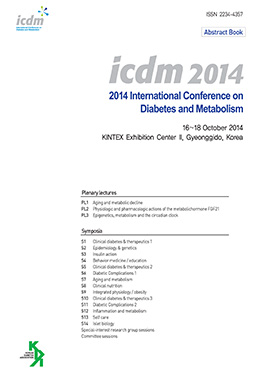Objective: Delta-like 1 homolog (DLK1) is an imprinted gene that inhibits adipogenesis and is associated with muscle hypertrophy in animal models. We aimed to investigate the metabolic effects of exogenous DLK1-Fc treatment in an animal model of diabetes.
Methods: Male db/db mice were randomly assigned to two groups: (1) vehicle-treated, and (2) DLK1-Fc-treated groups. DLK1-Fc (15 mg/kg) was intraperitoneally injected three times weekly for 4 weeks. Hepatic triglycerides were measured and oral glucose tolerance tests and insulin tolerance tests were performed. We also conducted glucose production assays in HepG2 cells and gene expression analysis (immunoblots and real-time PCR) to assess fatty acid oxidation and gluconeogenesis-related genes.
Results: Administration of DLK1-Fc significantly reduced fasting and random glucose levels in db/db mice. Hepatic triglycerides contents were significantly decreased and glucose tolerance and insulin tolerance were ameliorated in DLK1-Fc-treated mice. In the liver of db/db mice and HepG2 cells, DLK1-Fc treatment significantly increased phosphorylation of AMPK by 1.7 folds and ACC, indicating activation of fatty acid oxidation. Furthermore, DLK1-Fc treatment suppressed glucose production from HepG2 cells, which was blocked after administration of compound C. DLK1-Fc-treated HepG2 cells and liver tissues showed decreased expression of PEPCK and G6Pase, two essential enzymes for gluconeogenesis.
Conclusion: Our results show that exogenous treatment of DLK1-Fc regulates fatty acid oxidation and gluconeogenesis via activation of AMPK in db/db mice and HepG2 cells. This implicates that DLK1 may provide a novel therapeutic approach to treat non-alcoholic fatty liver disease and diabetes.


